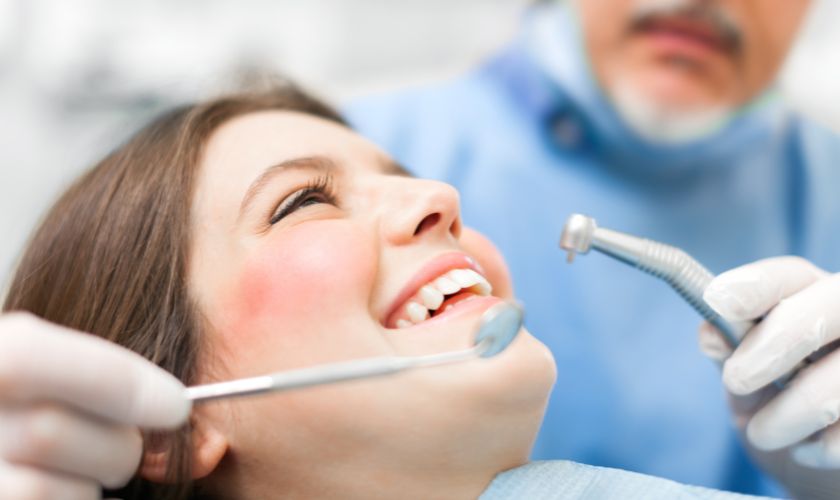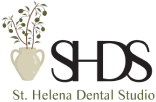New Patients Are Welcome!
Recovery Tips After Oral Surgery: What to Expect

Oral or maxillofacial surgery can be a daunting prospect, but with the right guidance and care, your recovery can be smooth and swift. Whether you’ve undergone a tooth extraction, wisdom teeth removal, or any other dental surgery, knowing what to expect and how to care for yourself properly post-procedure is crucial for a successful recovery. This blog will walk you through the various aspects of recovery after oral surgery in St Helena, CA. Read on for practical tips and advice to help you navigate this surgical procedure confidently.
Preparing for Recovery
Before your oral surgical procedure, it’s essential to take some preparatory steps to ensure a comfortable and successful recovery. Start by discussing the procedure with your dentist or oral surgeon to understand what to expect and any specific instructions you need to follow. Make arrangements for transportation to and from the appointment, as you may be unable to drive after surgery. Additionally, stock up on soft foods, such as yogurt, pudding, and mashed potatoes, to eat during the initial stages of recovery when your mouth may be sore and tender.
Immediate Post-Op Care
After dental surgery, it’s normal to experience some degree of swelling, discomfort, and possibly bleeding. To minimize swelling, apply an ice pack to the outside of your face in the affected area for 20 minutes on and 20 minutes off for the first 24 to 48 hours following the procedure. Take any prescribed pain medication as directed by your dentist to manage any discomfort. Additionally, avoid smoking and drinking through straws, as these activities can increase your risk of complications and delay healing.
Managing Discomfort
While some discomfort is to be expected after maxillofacial surgery, there are several steps you can take to help manage it and promote healing. For the first few days following surgery, stick to a soft diet consisting of foods like soups, smoothies, and scrambled eggs to avoid putting undue pressure on the surgical site. Rinse your mouth gently with saltwater several times a day to keep the area clean and reduce the risk of infection.
Monitoring for Complications
As you recover from oral surgery, it’s important to keep an eye out for any signs of complications that may arise. These can include excessive bleeding, persistent pain, swelling, or signs of infection such as fever or foul-smelling discharge. If you experience any of these symptoms, contact your St Helena dentist immediately for further evaluation and treatment.
Maintaining Oral Hygiene
While it’s important to rest and recover after dental surgery, it’s equally important to maintain good oral hygiene to prevent complications and promote healing. Brush your teeth gently, avoiding the surgical site if possible, to remove plaque and bacteria that can contribute to infection. Rinse your mouth with an antimicrobial mouthwash or saltwater solution to keep the area clean and reduce the risk of infection. Be sure to follow any specific oral hygiene instructions provided by your dentist or oral surgeon to ensure optimal healing and minimize the risk of complications.
Eating and Drinking
Following oral surgical procedures, it’s important to stick to a soft diet for the first few days to allow the surgical site to heal properly. Avoid hard, crunchy, or spicy foods that can irritate the area or become lodged at the surgical site. Instead, opt for soft, easy-to-eat foods like mashed potatoes, yogurt, pudding, and smoothies. Be sure to drink plenty of fluids to stay hydrated, but avoid using a straw, as the suction can dislodge blood clots and delay healing.
Staying Hydrated
Staying hydrated is crucial for a speedy recovery after maxillofacial surgery, as it helps promote healing and prevent complications. Be sure to drink plenty of water throughout the day, but avoid using straws, as the suction can dislodge blood clots and delay healing. If you’re having trouble drinking due to pain or discomfort, try sipping ice water or sucking on ice chips to numb the area and provide relief.
Rest and Recovery
After dental surgery, it’s important to give your body the time it needs to rest and recover properly. Avoid strenuous activities, including heavy lifting and vigorous exercise, for at least the first 24 to 48 hours following the procedure. Instead, focus on relaxing and taking care of yourself, both physically and mentally. Get plenty of rest, and avoid activities that could increase your risk of injury or delay healing.
Follow-Up Care
Following surgical dental procedures, it’s important to attend any follow-up appointments scheduled by your dentist to monitor your progress and ensure proper healing. During these appointments, your dental care team will evaluate the surgical site, remove any sutures if necessary, and address any concerns or questions you may have about your recovery.
Recovering from dental surgery may seem daunting, but with the right preparation, care, and guidance, you can navigate it comfortably. By following these tips and guidelines, expect a smooth recovery after oral surgery in St Helena, CA.

